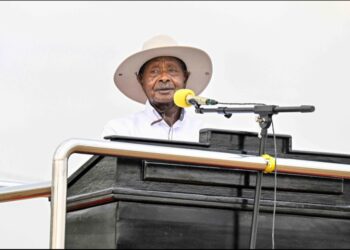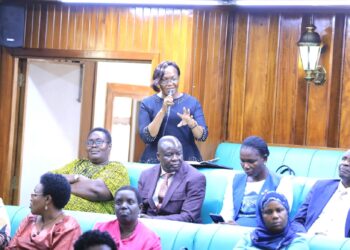Since 2001 it has been the community health workers who basically hold up the primary health care system in Uganda. These are basically volunteers, who provide basic health services in their local villages. They are lay people doing what they can to provide the services needed in these rural areas. In the same way, but for leisure purposes, you can play online poker remotely from any digital device you have available.
The services these health workers provide cover things like diagnosing and treating the usual common childhood sicknesses, like pneumonia and malaria to giving maternal health services. If they did not offer this service, there would be none available for these women.
Now the situation will become even more critical. They will need to be dealing with coronavirus, something that even the highly developed health systems around the globe are struggling with.
Rebecca Hamala and Allan Namanda are both in their twenties and are both community health worker supervisors. They need to inform, and train these workers about the coronavirus and explain to them what is likely to happen. There is a slide show and presentation which explains what coronavirus is and how it spreads and what they, as health workers, will need to do to prepare their communities for what is likely to be a long drawn out battle.
Uganda’s Health System
Uganda’s minister of health announced the first case of coronavirus just a week ago. Following this, the president ordered all schools to close and also places of prayer for a period of 30 days. All travel inside and outside of the country was halted in the hope that this would prevent the spread of the virus. Hopefully these measures will help, but more needs to be done, particularly in light of the challenges already facing the health system in Uganda.
Government health care expenditure in Uganda is one of the lowest in the world. According to The World Bank, its per capita spending on health is $6.17. This is one third of what the US spends.
One result of this lack of health care spending is that there are only 55 intensive care units to cover the 42 million people of Uganda. And 20 of these are not able to function at ventilatory capacity and most of them do not belong to the public health system. Not to mention the fact that these units are located in large urban areas.
Trying to get to these hospitals is almost impossible for those living in secluded and rural areas. Dirt roads are often impossible to negotiate, especially during the rainy season and using public transport to get into the urban areas where the hospitals are located costs a small fortune. Those lucky enough to reach hospitals will likely need to pay “unofficial fees” in order to get some help. This can mean financial disaster for many people.
Rural and Remote Regions
The main line of defense against coronavirus will be those people who live in the rural areas of Uganda and sub-Saharan Africa and, therefore, community health workers are even more important now than they were before.
A US-Liberian organization, Last Mile Health, which supports 3,500 community health workers, is trying to help. This is a non-government organization that has created a framework by which key roles are designated to health workers in the prevention, detection and response this to crisis.
One community health worker stressed that she had dealt with many sicknesses all her life, Malaria, HIV and TB, and she didn’t really fear disease but that in this case they have no treatment for coronavirus so prevention is crucial.
The truth is that prevention may be the only thing for poorer countries to do in order to protect their citizens. They have poor inadequate health systems. Recently health workers have been putting together hand washing units called “Tippy-taps” in various communal areas and also encouraged this in people’s homes.
These “Tippy taps” are put together by using materials found locally like rope, branches from trees and recycled cans and then loaded with liquid soap. This shows the incredible resourcefulness and ability to improvise of those workers in a time of crisis.
More low-cost smartphones and better cellular access is also helping community health workers to share experiences, up-to-date changes in policy and those practices that work best. Best of all they can encourage one another in the important work that they are doing at such a critical time.
These phones also allow these workers to access the World Health Organization’s WhatsApp group which gives them up to date and correct information which they can then pass on to local communities. This helps to dispel rumors and incorrect information from spreading when people are in a time of high stress.
These community health workers also have to deal with local issues. For instance, enforcing or encouraging the preventative measure of social distancing approved by the government. Many households have 10 people living in one room so this is clearly not possible. Also trying to put a stop to religious meetings will be an uphill battle as these are important social events.
There is a lot of discussion taking place between community health workers and local leaders to try to come up with a plan to solve these issues concerning social distancing. It is likely that these will be more likely to succeed than trying to force through directives coming from government.
Community workers are doing their upmost to deal with the situation. It is crucial that they receive help and support from the government and from non-governmental organizations. They will need, amongst other things, protective equipment and testing kits. We need to support these incredibly brave and courageous men and women who are trying to save the health of a nation and continent.
Do you have a story in your community or an opinion to share with us: Email us at editorial@watchdoguganda.com













